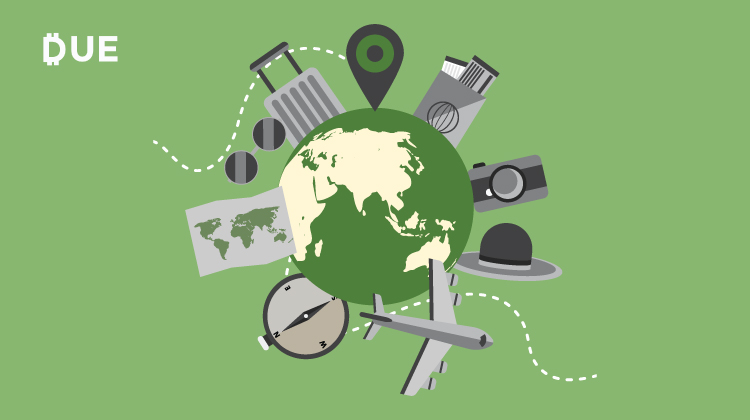People tend to go on vacations to indulge, spending money more freely than usual, but those costs can eat into your personal financial health if you aren’t careful. And if your budget’s already tight, you might think a vacation is impossible because of how expensive even a small trip can be—after all, the average solo trip costs about $1,145, with the average trip for a family of 4 costing $4,580.
Table of Contents
ToggleGoing on Vacation? 25 Important Ways to Save Money
But regardless of whether you’re trying to travel as inexpensively as possible or whether you’re just working on getting your spending habits in check, there are some strategies you can use to lower your costs—and still have a fantastic time.
Choosing the Right Locations
The first thing you usually do when planning a trip is choosing the location, so this is where your money-saving approach should start.
- Be flexible. You might have an “ideal” destination in mind, but that location may be significantly more expensive than other options. Try to be flexible; you might find a location that’s far more affordable.
- Look for favorable exchange rates. If you’re going to travel abroad, it’s a good idea to compare your destination’s form of currency to American currency. If you choose a country with a favorable exchange rate, you could save hundreds of dollars instantly—but if it’s an unfavorable exchange rate, you could end up paying hundreds more than you have to.
- Consider a local trip. Instead of traveling internationally, consider taking a road trip to a nearby city or state. Travel costs will be much lower, but you’ll still get some fresh scenery. Plus, if you stay local, you might be able to keep participating in your current side gigs, so you can keep that revenue stream flowing.
Timing your Vacation
You may not have much flexibility on when to take your trip, but it’s important to time your trip frugally if you don’t have any wiggle room.
- Set price alerts. If you’re flexible on timing, you can set up price alerts on major travel booking sites. Hence, you receive a notification when there’s a significant price drop on airfare or hotel bookings in your intended destination. Jump on one of those deals, and you could save a practical fortune.
- Look at prices in incognito mode. It’s a good idea to look at prices in the weeks and months leading up to your trip, but when you look them up, use incognito mode or a similar private browsing feature. Otherwise, those prices may go up the next time you see them in an effort to pressure you to buy.
- Aim for last-minute deals. Though it seems counterintuitive, consider waiting until the last minute to book a trip—there will almost always be a significant price drop to fill the remaining vacancies. And if you really want to capitalize on a deal, make sure you use a credit card that offers rewards for big purchases.
- Travel during the offseason. You’ll pay a premium to travel during summer months or major holidays when demand is especially high. Instead, try to travel during the offseason, such as during the fall or winter months.
- Travel midweek. You can also save money by traveling in the middle of the week. Airfare and hotel costs tend to rise on the weekends, which means your weekday rates will add up to big savings.
Preparing Your Home
Before you leave, make sure you take care of a few things around the house.
- Check your insurance coverage. Before you leave, check your insurance policies to make sure you’re covered in the event of an accident or natural disaster that occurs while you’re gone. You should also consider whether to put your car insurance on hold if you won’t be driving. In most cases, it’s better to keep your policy active so you can earn discounts for continuous coverage, especially if you have cheap insurance to begin with.
- Turn down your water heater. Take a minute to review your water heater’s setting, and turn it down a couple of notches. If no one uses the hot water, a high setting will only serve to waste energy (and cost you money).
- Unplug your appliances. You can also lower your utility bills by unplugging all your appliances—even the ones that are turned off. Even while off, most appliances and devices draw a small amount of phantom power. Keeping them unplugged will eliminate this and could reduce the risk of an electrical fire.
- Have a friend check-in. Instead of hiring a house sitter, ask a friend to check in on your house periodically. Treating them to dinner as a thank-you is probably less expensive than what a professional sitter would charge you.
Finding a Place to Stay
When it’s time to find a place to stay, there are some tricks you can use as well.
- Consider overnight travel. An overnight flight or train ride might seem inconvenient, but it will spare you from spending money on at least one night in a hotel. Plus, the rates for overnight travel tend to be lower, so you’ll save money in two ways.
- Negotiate hotel rates. Online booking sites are certainly convenient, but they don’t give you the possibility of negotiating your rate. Consider calling the hotel directly and negotiating for a better price.
- Stay in a hostel or shared space. You could also stay in a hostel with much lower rates associated with it or rely on a shared space through couch surfing or an exchange program. In some cases, you may be able to stay for free.
- Speaking of staying for free, consider bringing along a tent. Each night you camp is one more night you won’t have to pay for an expensive hotel.
Eating and Drinking
Eating and drinking take up more of your budget than you might realize. Fortunately, you can cut costs with the following strategies.
- Take advantage of a free breakfast. Many modern hotels offer a free continental breakfast, so consider taking advantage of it. It’s built into the price already and will spare you the need to go out for another meal.
- Get a room with a kitchen. Cooking instead of eating out is one of the easiest ways to save money, so consider getting a room that has a kitchen. Shop at the local market for fresh, local ingredients, and put together your own five-star meal.
- Splurge on lunch rather than dinner. You’ll want to go out at least a few times on your vacation, but if you’re going to splurge, do it during lunch rather than dinner. Most restaurants will offer a similar selection, but at much lower prices during lunchtime.
- Check out independent restaurants. You’ll be tempted to hit the biggest and most popular restaurants in the city, but it’s in your favor to check out the smaller, independent restaurants that you might not hear about in public discourse. These hole-in-the-wall joints will have lower prices—and oftentimes, better food and a better experience.
When You Arrive at Your Destination
When you enjoy the latest city, you can use these tips to enjoy yourself without paying a fortune.
- Rely on free tours. Almost every major city in the world has at least one free tour running, which will help you get a feel for the city. Spending lots of money on a professionally guided tour is a waste of money.
- Check out museums and architecture. There are plenty of free ways to enjoy your surroundings; consider checking out local, free museums, and appreciating the architecture of your chosen city. You could also go on a hike or appreciate nature in some other way.
- Rent bikes or walk. Bike rentals are becoming exceedingly popular around the world, and it’s relatively inexpensive to take part. Biking or walking to your destination will save you a fortune in travel costs, and keep you in good shape at the same time.
- Take public transportation. If you need to go somewhere further than your bodily power will allow, take advantage of the local public transit system. It’s cheap, efficient, and may even help you see the city in a new way.
- Talk to the locals. Finally, take the time to talk to the locals. Not only will it help you get an appreciation for the local population, but you’ll also get to learn about hidden features of the city, such as must-try restaurants, or cheap ways to travel.
These strategies can all help you save money on vacation without making you compromise the overall experience—in fact, some of them might actually help you have a better time.
You don’t have to use all of them, nor do you have to use them for every trip, but if you apply even a few of these travel-saving tips consistently, you could save hundreds of dollars (or more) on your next trip.
















